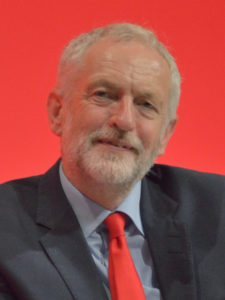So, there are fires again in California and it turns out the largest fire was caused by a downed PG&E power wire–despite the fact that PG&E cut power from vast swathes of the state to try and make sure that didn’t happen.
What’s hilarious about this is that PG&E has, ummm, a record:
As early as 1990, years before worsening drought and higher temperatures began pushing wildfire season into apocalyptic overdrive, PG&E was facing criminal charges for failing to trim the trees growing alongside its power lines as required by state law. In 1997, the utility was convicted of no fewer than 739 counts of criminal negligence for a fire that burned 500 acres and leveled 12 homes in the High Sierra town of Rough and Ready. State regulators later charged PG&E with more than 500,000instances, between 1994 and 1998, of failing to trim trees near their electric lines. (my emphasis)
This is mind-boggling. The sheer fucking incompetence, venality, and stupidity of both the government and PG&E. Half a million times they were fined, so obviously the fines weren’t working; PG& simply viewed them as part of the cost of doing business. This was going on in the 90s and the government DID NOTHING.
You have two acceptable choices in this case: You either nationalize the utility, or you change the law from requiring the imposition of fines to require criminal sentences for executives and board members (and probably anyone earning more than X dollars, so they don’t try and silo people from criminal penalties).
As with bankers, where the fines for widespread fraud (including stealing people’s houses by falsely signing documents), were far less than the gain, PG&E had no reason to stop.
This was especially exacerbated by an ideological choice: The decision that the only responsibility corporations had was to their shareholders, and not to anyone else. (This choice also wound up enriching executives far more than shareholders.)
Corporations are bundles of vastly valuable rights, the most important of which is that shareholders and executives are largely insulated from both bankruptcy and the law. In every case, it should be necessary for a corporation to make clear what the public gets in return for granting these rights.
But in the case of PG&E, only a moron would think that the proper solution is anything other than nationalization. Utilities are, in fact, natural monopolies.
But more to the point, they are critical infrastructure. How can California, the home of Silicon Valley, be so fucking incompetent as to have power outs because they aren’t doing basic maintenance? This is third world shit. This is Nigeria. This is pathetic.
In any actually functional society, this shit would get sorted out ASAP and heads would roll, metaphorically or literally.
Instead, we have California governor Gavin Newsom whining about how he’d like Warren Buffet to buy PG&E. Pathetic doesn’t cut it. He’s the governor of a state with an economy larger than most countries. Take it over and sort it out.
Frankly, this is the sort of incompetence that ought to have him thrown out of office, if he isn’t lynched–along with PG&E’s executives. But Americans have become the sort of people who just take abuse by their “betters” lying down, so I’m sure everyone involved will stay rich and important and live in a house with backup generators.
Pathetic.
(Note that this is categorized under “class warfare.” And yes, I know some rich people are getting hit too. Maybe they should realize they aren’t /that/ rich.)
The results of the work I do, like this article, are free, but food isn’t, so if you value my work, please DONATE or SUBSCRIBE.


 The problem here is that elites can generally out-wait protestors. They have more resources after all, and the revenue they are losing in a general strike is something they can absorb in a way that poor people can’t absorb losing wages.
The problem here is that elites can generally out-wait protestors. They have more resources after all, and the revenue they are losing in a general strike is something they can absorb in a way that poor people can’t absorb losing wages.